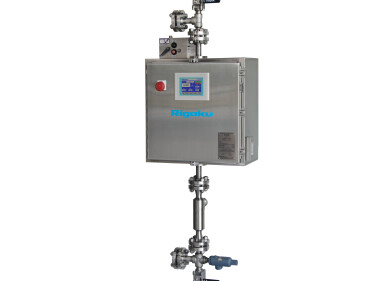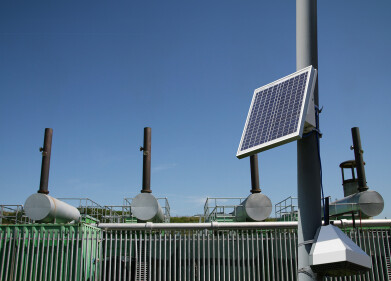Measurement and Testing
Can a 'Smart Sponge' Soak Up Oil Spills?
Jun 23 2020
A ‘smart sponge’ designed to soak up oil spills is the latest eco innovation developed by researchers at Northwestern University in Illinois. Highly porous and easy to manufacture, the sponge can absorb up to more than 30 times its weight. Adding to the environmentally-friendly credentials, the sponge can be cleaned and reused after use.
The power of OHM
More than just an average dish sponge, the team used an oleophilic, hydrophobic, magnetic (OHM) nanocomposite coating to enhance oil-extracting capacity. The oleophilic carbon-based substrate attracts oil, while the hydrophobic properties resist water. Finally, the magnetic nanostructures allow the sponge to retain and release oil on demand. Project leader Vinayak Dravid explains how the sponges present a clever solution to cleaning up the smaller spills that may not make headlines but “are still profoundly invasive to the ecosystem and surrounding community.”
“Our sponge can remediate these spills in a more economic, efficient and eco-friendly manner than any of the current state-of-the-art solutions,” he says.
Addressing the dangers of small-scale oil spills
Typically used in squares of around two to three feet in length, the sponges can be placed on beaches and airdropped into the ocean to soak up water spills. Not only can oil coat the wings of seabirds, it can also kill mammals and shellfish that ingest the substance. Oil can also clog the blowholes of dolphins and whales which can be devastating to marine populations. The long-term ecological effects are severe, with experts warning oil spills can disrupt aquatic food chains and disbalance entire ecosystems.
A sustainable, eco-friendly solution
Details of the OHM sponge were published in the peer-reviewed journal Industrial Engineering and Chemical Research, with first author of the study and senior research associate Vikas Nandwana explaining how oil spill clean-ups can be complex and expensive. Often, techniques such as oil burning and the use of chemical dispersants can add to environmental damage.
“Each approach has its own drawbacks and none are sustainable solutions,” says Nandwana. “Burning increases carbon emissions and dispersants are terribly harmful for marine wildlife. Skimmers don’t work in rough waters or with thin layers of oil. And sorbents are not only expensive, but they generate a huge amount of physical waste—similar to the diaper landfill issue.”
The ‘smart sponge’ overcomes these issues by absorbing only oil, without having a negative impact on marine life. Nandwana says a thin coating of the nanocomposite slurry can be added to any generic sponge, making it a fast, easy and cost-efficient solution.
“We are excited to introduce such smart sponges as an environmental remediation platform for selectively removing and recovering pollutants present in water, soil and air, such as excess nutrients, heavy metal contaminants, VOC/toxins and others,” says Nandwana. “The nanostructure coating can be tailored to selectively adsorb (and later desorb) these pollutants.”
Want to know more about how the oil industry is working to improve its environmental credentials. Spotlighting the air travel sector, ‘Reducing Aviation Emissions: Navigating Challenges Towards Sustainable Aviation Fuels (SAFs)’ looks at how airlines are working to minimise emissions.
Digital Edition
PIN 25.5 Oct/Nov 2024
November 2024
Analytical Instrumentation - Picturing Viscosity – How Can a Viscometer or a Rheometer Benefit You? - Sustainable Grease Formulations: Evaluating Key Performance Parameters and Testing Method...
View all digital editions
Events
Nov 27 2024 Istanbul, Turkey
Biogas Convention & Trade Fair 2024
Nov 27 2024 Hanover, Germany
Dec 03 2024 Dusseldorf, Germany
Dec 08 2024 Anaheim, CA, USA
Turkey & Black Sea Oil and Gas
Dec 11 2024 Istanbul, Turkey



















